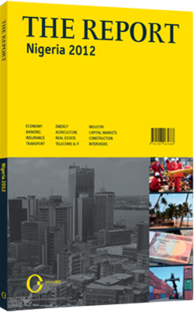Diezani Alison Madueke, Minister of Petroleum, on the challenges of maximising production

Since President Goodluck Jonathan assumed office in May 2011, the oil and gas sector has witnessed a renewed wave of activity and increased performance levels. This has placed the industry back on the path of growth and sustained development.
In the upstream segment, crude production has consistently been maintained above the budgeted levels of 2.3m barrels per day (bpd). Gas sales increased by more than 70% to an average 4bn standard cu feet (scf) per day in 2011, and for the first time, the industry supplied more domestic gas than was consumed by the power and industrial sectors. Nigeria Liquefied Natural Gas had one of its most successful years in 2011, with production peaking at 21.2m tonnes. This was due in no small part to the government’s amnesty programme, which has facilitated unhindered access to oil and gas operations and activities.
Deepwater oil production was greatly enhanced with the introduction of the Usan floating, production, storage and offloading facility. The country has seen active portfolio actions by Shell Petroleum Development Company, with the divestment of international oil firm equities in eight oil mining leases. Just as importantly, with the special support of President Jonathan, we assigned equities and operatorship in producing blocks to the Nigerian Petroleum Development Company. The impact of this has been tremendous, with current production peaking at 111,000 bpd and 230m scf of fully utilised gas, a far cry from the 30,000 bpd the firm was producing on average in 2010.
In the gas sub-sector, there has been sustained gas supply for power generation and industrial use. However, after supply peaked towards the end of 2012, Nigeria has recently experienced some technical challenges resulting in a shortfall, which we are working aggressively to bridge. Efforts have been renewed to ensure relevant gas-supply purchase agreements are executed to encourage upstream gas development.
The downstream sector has also seen a wave of activity that has had a number of positive impacts on the industry and ensured against a major fuel crisis in 2011. This includes offshore processing, swap arrangements and increased domestic refining by the Nigerian National Petroleum Corporation. The Kaduna Refinery’s fluid catalytic cracking unit was commissioned for the first time in eight years in March 2012. Refineries in Port Harcourt and Warri were operated to their maximum capacity, while the integrity of key product pipeline infrastructure was re-established. This has resulted in more products being available at inland depots, enabling faster intervention when necessary.
As regards broadening Nigerian content and growing local capacity, we have been working to increase the use of Nigeria-made pipelines, securing placement of over 100 km of pipeline orders at SCC Abuja, the country’s only pipe manufacturing firm, and advancing plans to set up a 250,000-tonne-per-year pipe mill. We have also developed the Oil and Gas Employment and Training Strategy, which has resulted in the absorption of over 5000 engineers, geologists, welders and other skilled workers into the sector.
As we celebrate these successes, we must be aware of the challenges within the sector, mostly characterised by sabotage, financial leakages, lack of structure and other deep-rooted inefficiencies. There is undoubtedly a need for change and we must rise to the challenge. We must work to eliminate waste in the petroleum sector, whether it is reducing gas flaring by preventing pipelines from being vandalised or by restoring the decaying infrastructure downstream. We must open the way for true reform and fix the inefficiencies in the sector. Moreover, we need to ensure transparency and accountability to attract greater investments to generate prosperity for all stakeholders.
This should compliment other reforms that are under way, in particular the Petroleum Industry Bill, which is concentrated on ensuring clarity of roles, fiscal terms, attracting sustainable investment, articulating incentives for growth in indigenous participation and establishing a clearer governance structure for the industry.
You have reached the limit of premium articles you can view for free.
Choose from the options below to purchase print or digital editions of our Reports. You can also purchase a website subscription giving you unlimited access to all of our Reports online for 12 months.
If you have already purchased this Report or have a website subscription, please login to continue.

